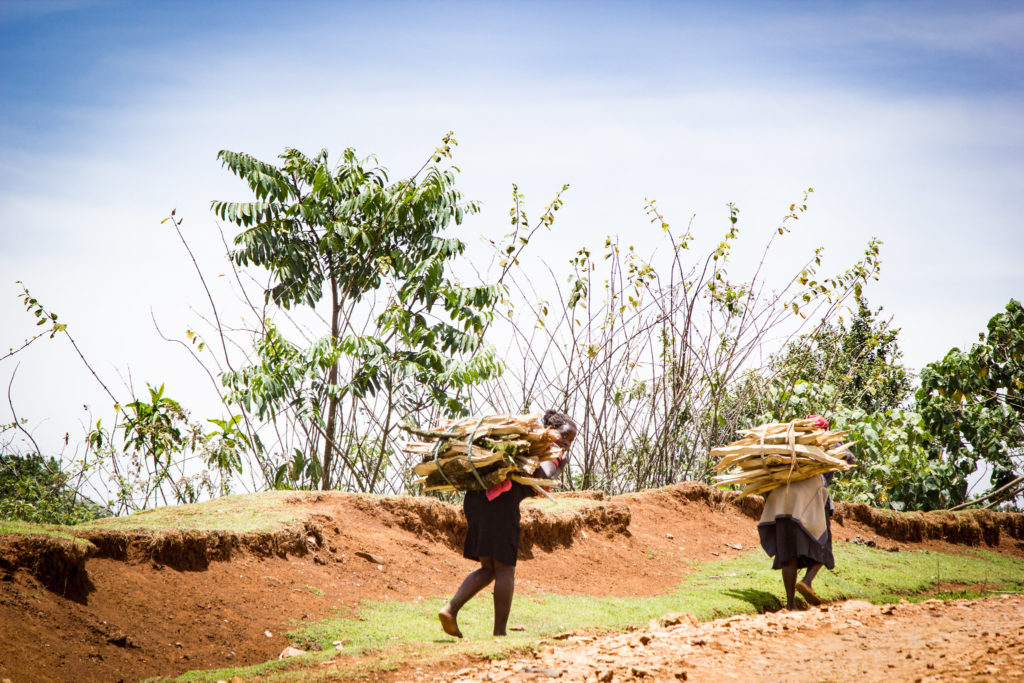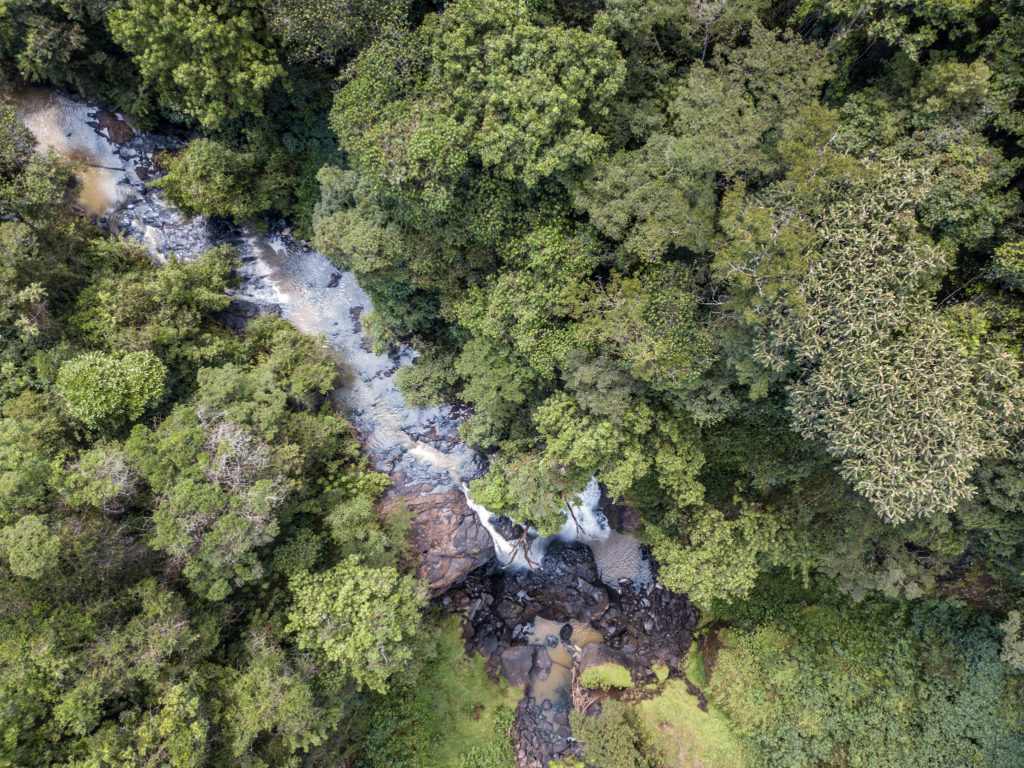The Kenyan government is again forcibly evicting families from the Mau Forest, East Africa’s biggest water catchment area endowed with the largest montane forest in the region. The government claims that since July of this year, approximately 2,200 households have been evicted from the forest lands, of a total of 60,000 families slated to be forcibly displaced from the forest.
“We have lived here for the past 17 years after we sold everything we had and bought 24 hectares from a prominent Kenyan family,” Anne Rotich, a 65 year-old granny, told Toward Freedom. Rotich was a resident of the Enkaroni Group Ranch, one of three large ranches excised from the Mau Forest in the early 1990s. “It pains me that the government, even after issuing us with a deed to the land, has the temerity to refer to my family as illegal squatters,” she said.
On August 18, Kenya’s Cabinet Secretary for the Ministry of Environment and Forestry Keriako Tobiko deemed land encroachment a crime, removing the possibility of compensation for those evicted. “You cannot pay people for crime,” said Tobiko at a press conference held near the Mau Forest. “In fact, the government is being lenient. In normal circumstances, it jails people for crime,” he said.

Human Rights Watch has documented acts of highhandedness by government officials executing a government directive that has set an October 30 deadline to remove the communities from the forest. Human Rights Watch recently published a report titled Kenya: Abusive Evictions in Mau Forest, which claims government was conducting the evictions “in an abusive, unlawful manner” by failing to follow its own guidelines.
“While forest conservation goals are laudable, the way the government is carrying out the evictions raises serious human rights concerns,” said Otsieno Namwaya, Africa researcher at Human Rights Watch, according to the report. The report also details how nine people have died since the evictions began under the administration of President Uhuru Kenyatta
Among the victims is five year old Sharon Chepkoech, who fell off the back of her 26-year-old mother as they fled the evictions team, which demolished their house and destroyed their food store. The child fell ill as a result of the fall and died a week later, according to a relative.
Another case documented by HRW is that of 52-year-old Elizabeth Tuwei, who died last year after being admitted to a hospital.
“The evictions team came with power-saws, which they used to destroy everything, including food stores, crops in the farms and all our houses,” Richard Ng’eno, her son, told Human Rights Watch. “My mother collapsed in shock on July 7 when the evictions started and we admitted her at a local hospital, where she died.”
Even before Kenya gained independence, the Ogiek community of traditional hunter-gathers lived in the Mau Forest. In 2017, after more than 20 years of legal battles, the Ogiek won a landmark victory when the African Court on Human and Peoples’ Rights, an international court based in neighbouring Tanzania, ruled the Kenyan government had violated the Ogiek’s rights on their ancestral land. But because they lacked deeds for their land, the Ogiek people were vulnerable to instances of forcible eviction. Today there are approximately 15,000 members of the community who currently live within the May Forest where they tend and keep bees.
Encroachment on the Mau Forest began immediately after Kenyan independence in 1963, with a noticeable surge registered during the 24-year-reign of Daniel arap Moi (1978-2012). Now 95, Moi used the ecosystem to his personal benefit. He was known to gift influential members of his political base–most of who were from his ethnic community–with rich forest lands for a song.

Moi also excised 900 hectares of the Mau complex to establish his own tea estate in 1978. Some of his colluding allies held the forest lands for speculative purposes flipping them to unsuspecting locals like Rotich and her family. At least 40 percent of the forest cover has been depleted by deforestation and encroachment by more than 50,000 people who authorities say were irregularly allocated land by government officials since 1974.
“The invasions of Mau Forest epitomize misuse of power and outright breaking of the law by the ruling elites in all the government regimes that Kenya has had,” the Executive Director of Transparency International Kenya, Samuel Kimeu wrote in an email to Toward Freedom. “Senior and influential politicians drawn from former and current regimes were the key perpetrators of the land grab and that is the reason it looks like it’s impossible to secure and conserve the forest.”
Moi’s political machinery finally called it quits after landslide elections in 2002, ending 39 years of uninterrupted rule by the Kenya African National Union party (KANU). Then in-coming President, Mwai Kibaki, who is widely credited with ushering in a national renaissance of sorts, began to tackle Kenya’s land problem.
In 2018, Kibaki set up a Presidential Commission of Inquiry popularly known as the ‘Ndung’u’ Report, after its Chairman Mr. Paul Ndiritu Ndungu.
The report found that after independence, land “was no longer allocated for development purposes but as political reward… ‘Land grabbing’ became part and parcel of official grand corruption through which land meant for public purposes…. has been acquired by individuals and corporations.”
The same report found rampant illegal allocations and encroachments, leading to a situation where “an extensive and on-going destruction of a key natural asset for the country is a matter of national emergency. It presents significant environmental, economic and security threats.”
Spanning 400,000 hectares, the Mau Forest is located 175 kilometers west of Nairobi, Kenya’s capital. The United Nations Environment Programme valued the Mau Forest at over $300 million in 2008.
Since 2004, Kenyan authorities have been attempting to conserve Mau forest. An estimated 100,000 people were evicted between 2004 and 2006. Amnesty International and the Kenya National Commission on Human Rights alleged that the initial evictions were carried out with serious abuses. The evictions were halted by a local High Court ruling that said the government could not revoke titles without court orders.
“In all honesty the Kenyatta Administration should admit that together with previous regimes it perpetuated the illegality by going ahead to put infrastructure within the ecosystem including schools, hospitals, police stations, roads, power grinds and so on,” said Isaac Ruto. Ruto, an ex-governor of a county bordering the Mau Forest, spoke with Toward Freedom while visiting the area. Many of those facing eviction today are part of his political base. “If they are going ahead to evict people from the forest [the people who are evicted] should be compensated,” said Ruto, who is now dedicated to large scale farming.
To its credit, the Kenyatta government is finally setting the stage for persecuting individuals thought to bear the greatest responsibility for the destruction of the Mau ecosystem. But it is the poorest residents of the fragile forest lands who continue to pay the highest price.
Author Bio
Charles Wachira is a journalist based in Kenya, formerly a correspondent with Bloomberg and the Inter Press Service (IPS). He covers regional issues such as human rights, politics, gender, climate change, and business, including oil & gas.
